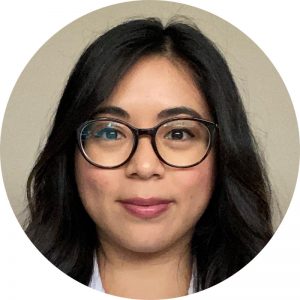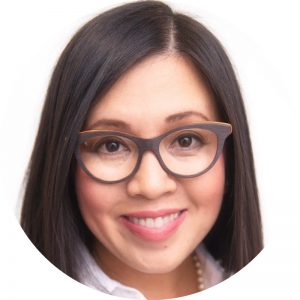Before you start yelling and writing angry letters, hear us out… U.S. News & World Report recently ranked the “100 Best Jobs of 2020” and optometrist came in at #16 thanks in part to a generous median salary, low unemployment rates and a good number of available jobs. They did not specify the practice modality but with language like “unemployment rates” and “available jobs” our guess is that they are not talking self-employed private practice ODs.
Once considered the “enemy” of private practice and independent optometry, corporate optometry is undergoing a bit of a renaissance thanks to the flood of private equity into the eyecare space. No longer just the purview of big box merchants or discount national chains, corporate optometry modalities are becoming as varied as private practice manifestations and attracting seasoned and established independent optometrists, as well as new grads.
According to Dr. Maria Sampalis, a corporate optometrist herself and founder of Corporate Optometry on Facebook, a platform for corporate optometrists to network and share ideas and experiences with more than 30k members, “We have seen great advances in corporate optometry the last 10 years. Tremendous growth and expansion. More ODs than ever before looking to go this route and be proud to be affiliated with a retail brand. There are so many different pathways in corporate optometry that are appealing to ODs.”
Advertisement
One of the reasons for corporate optometry’s appeal is its deep pockets and ability to invest in technology. “In my opinion, one of the most significant changes in corporate optometry in the last 10 years is its shift in dealing with the enormous growth of online eyeglass and contact lens [sales] and ‘legitimate’ eye exam services,” states Dr. Lance McNaughton, an associate professor in the Department of Specialty and Advanced Care at the New England College of Optometry (NECO). “State laws have been unusually lax given the overall impunity these companies enjoy while they claim to offer prescription services in the absence of a bonafide exam by a licensed optometrist. In response, corporate optometry has tried to establish a greater presence online, offering as much of a personal online experience as possible to attract patients to local retail outlets.”
Regarding corporate optometry’s investment in tech, Sampalis continues, “I think we will start to see more consolidation as the retail landscape changes. We will see a shift into healthcare hubs and a rise in telehealth.” Unfortunately, the sort of financial capital required to keep up with these online and telehealth advancements is often out of reach of the classic independent, small-business, private practice optometrist.
Obviously, more “traditional” practice settings under the corporate umbrella still exist (and are thriving), but because of this focus on technology, a hybrid model has emerged thanks to private equity investment that is attracting a whole new group of optometrists. One that provides an exit strategy, succession plan or just the offloading of the practice management responsibilities that have increasingly stolen optometrists’ time away from patients. It is a compelling and seductive draw … especially when a pandemic can threaten everything an unsupported private practice OD has worked so hard for.
Curious? Read on for snapshots into the lives of five optometrists who have made the commitment to the corporate life, why they did so, and how they practice.
 Kimberly-Anne Llamzon, OD
Kimberly-Anne Llamzon, OD
America’s Best Contacts & Eyeglasses, NY
Dr. Llamzon has been an employed optometrist with National Vision, Inc. at an America’s Best Contacts & Eyeglasses location in a one-door state since August 2017. National Vision Holdings, Inc. is one of the largest optical retail companies in the U.S. with over 1,100 stores in 44 states, the District of Columbia and Puerto Rico. Their mission of helping people by making quality eyecare and eyewear more affordable and accessible is facilitated through five retail brands: America’s Best Contacts & Eyeglasses, Eyeglass World, select Walmart Vision Centers, and Vista Opticals in select Fred Meyer stores and on select military bases.
“I shadowed a few private practice optometrists before optometry school — so I had initially thought of going into private practice. After attending a National Vision dinner my last year of optometry school, I became intrigued by corporate optometry as a good career start. It allows me to be independent, and provides a stable income to pay off my student loans and save for my future. In my experience with National Vision, they will never tell you how to practice or what to sell. With the amount of patients I see, I am able to practice my time management, improve my clinical skills, and better communicate with patients to become a better optometrist.
“It is a misconception that corporate optometry is just refractions. I see a variety of ocular diseases and infections that keep me on my toes. My scope of practice allows me to prescribe topical drugs for corneal diseases, such as abrasions and complications related to contact lenses, and to co-manage surgical patients with local ophthalmologists who often refer back to my practice for any refractive needs the patient may need following their assessment and treatment.
“In terms of advantages, first, I have a steady and stable income with a bonus structure. I know exactly what I am receiving bi-weekly. Second, I do not have to work additional hours on practice management; it is done by the store manager and associates during work hours. Third, I receive benefits like paid time-off, health/dental/life insurance, and yearly pay increases. Lastly, there are times when I am the only healthcare professional a patient has seen in many years, or ever, because of the affordability of the eyecare services we offer.
“There are only a few disadvantages. Sometimes working hours can be a challenge, with evenings, Saturdays and some holidays. While this may be inconvenient at times for me personally, it is definitely an advantage for my patients; I am able to help more people get the care they need. Patient volume can also present a challenge. It can be stressful to be seeing so many patients a day, and sometimes the time between appointments is not enough. I am able to take as much time as I need to properly assess each patient, but I don’t like to keep scheduled patients waiting. But with COVID-19, the company has made accommodations for additional time between patients as part of the enhanced safety protocols.
“I think with all the technological advances and research in eyecare, corporate optometry is continuing to grow along with the demand for eyecare. Some corporate settings—including mine—continue to make eyecare affordable to everyone.”
 Ryan Corte, OD
Ryan Corte, OD
Northlake Eye, NC
Dr. Corte has been a subleasing optometrist with LensCrafters since April 2017 in a two-door state. Nationally, LensCrafters offers opportunities for sublease doctors, associates of a sublease doctor or employed optometrists. As an “independent doctor of optometry” with LensCrafters, affiliates can gain access to a knowledgeable community passionate about eyecare and have the benefit of working in an office with state of the art equipment.
“My business partner and her husband [Drs. Rachael and Brad Wruble] reached out to me four years ago with an opportunity I couldn’t turn down. We run our practice like a private practice without an optical and I’ve truly enjoyed the process of growing the business over time.
Advertisement
“I practice full scope optometry that includes the treatment and management of ocular disease and specialty contact lenses. Of course, this is something I could have done in a traditional private practice setting but I would have gone into more debt to do so. Instead, I’m now debt free and am very happy with my decision to partner with LensCrafters. Our team has a fantastic relationship with the LensCrafters optical and leadership team. If disagreements ever occur, we talk things out and come to a mutually beneficial solution.
“For me, the biggest advantages of practicing in a corporate optometry setting have been the brand recognition and robust consumer marketing of a corporation like LensCrafters, which has been more powerful than I’d ever imagined. Also, having the ability to own a practice without traditional upfront overhead is a huge advantage.
“On the flipside, the hours of operation align with traditional retail, including evenings and weekends. That includes most federal holidays as well, which I would change if I could change one thing about corporate optometry. Also, not having control over the subleased space makes it challenging to bring in advanced diagnostic equipment.
“The appeal of a corporate optometry setting really depends on the divison … you decide to practice in. As a subleasing OD that partners with one of the largest corporations… the ability to open a practice with less overhead than opening it cold is a huge benefit for ODs coming out of school with debt north of $200K.
“‘Corporate optometry’ is honestly an umbrella term that most ODs don’t truly understand unless they’ve worked in a setting with a corporate partner. I have colleagues that work in both employed and subleasing corporate practice settings that are very happy (myself included), have the ability to practice exactly how they please, and earn a great living.
“The number of opportunities there are to work in a practice setting with a corporate optometry partner has never been higher. This is a trend I predict will continue to increase over time. Furthermore, the BEST corporate partners that work well with optometrists will rise to the top and have a huge advantage attracting talent and customers over the competition.”
 Cam Letafat, OD
Cam Letafat, OD
Warby Parker, NY
Dr. Letafat is the Optometrist Area Leader-NYC for Warby Parker, where she has been an employed optometrist since June 2014 in a one-door state. Warby Parker was founded in 2010 and today has more than 3,000 employees in over 120 retail locations around the U.S. and Canada and an optical lab in upstate New York. Stores offer eye exams, contacts and prescription verification. Warby Parker prides itself on creating a work environment in which employees can think big, have fun, achieve personal growth and engage with the community. Its ever-growing number of optometrists play a key role in supporting Warby Parker’s commitment to providing unparalleled vision care to every customer.
“Corporate optometry offers more than an eyeglasses or contact lens exam. Although corporate settings employ excellent eyecare providers, there is a misconception that they do not provide comprehensive eyecare. On the contrary, ODs in corporate settings have the ability to work independently in choosing how to diagnose and treat their patients. Many corporate offices have the ability to offer advanced diagnostic technology to better manage ocular pathology. At Warby Parker, ODs are encouraged to place the patient’s health first during the clinical decision-making process.
“Corporate optometry offers career growth opportunities outside of the exam room to develop and enhance professional skills. As an Optometrist Area Leader, I help lead our growing network of ODs to become better clinicians and achieve their professional goals.
“This setting has allowed me to work cross-functionally with different departments from our corporate office to help execute operational initiatives that better support our optometrists and have a positive impact on our business.
“Practicing in this setting provides good job security, a competitive earning potential, good benefits, no practice expenses, and less administrative responsibilities than other practice modalities. You are a part of a larger network of ODs that offers a sense of community and a chance to knowledge-share as a group. There are opportunities to collaborate with team members from the wider team who not only provide day-to-day operational support but work to innovate and make a positive impact in the optical industry.
“At Warby Parker, we view corporate optometry no different than optometry in other practice settings: our goal is to provide comprehensive eyecare while putting the needs of our patients first. Advocating for our profession is key. As an industry, we can do a better job in educating the general public, other medical professionals, and insurers on how each comprehensive eye exam provided is uniquely tailored to the patient’s specific needs. Getting involved and supporting optometric legislative priorities can impact how we practice optometry today and in the future.
“COVID-19 has only amplified the need for affordable and accessible eyecare, particularly through the use of telemedicine. These offerings require robust healthcare information technology platforms.
“With the resources available in a corporate optometry setting, there is more of a possibility to develop these technological advances efficiently to better support doctors and create more seamless patient experiences.
“At the same time, Warby Parker feels that new technology must always be coupled with well-trained eyecare providers. We strive to offer our doctors with opportunities for career and professional development to ensure they are ready to move optometry forward.”
 Donny Broyles, OD
Donny Broyles, OD
Redhawk Vision Center, Ca
Dr. Broyles was in private practice at Redhawk Vision Center in Temecula, CA for 18 years, before selling to VSP Ventures in October 2019. He is now employed at Redhawk by VSP Ventures—a business unit designed to provide care-focused choices for ODs looking to retire or evolve to a different practice model. VSP Ventures is focused on the long-term success of a practice by offering a range of customized transition models so doctors can continue to provide full-scope, personalized care to their patients.
“Providing comprehensive eye care to our patients has always been our passion. As we looked into long-term goals for our practice, VSP Ventures was the clear choice—one that will not buy and sell our practice and [will] work to preserve our legacy.
“Partnering with a unique business model, like VSP Ventures, frees you from the hassles of certain management issues and allows you to focus on patient care. This has been extremely helpful during stressful times, especially throughout this year given the COVID-19 pandemic.
“Our integration with VSP Ventures was very seamless. There was a well-defined transition process which did not affect the practice flow and assured us they are the right partners for our continued success.
“Choosing VSP Ventures provided many advantages, but there are two that standout for me. First, we’re a part of a unique, not-for-profit, care-focused model that allows us to focus our efforts on providing holistic care to patients—which is something you just don’t find from the investor-owned options. Second, there are no shareholders, which can often delay decision making.
“The biggest advantage though is that it offers you the right support and tools to deliver the highest level of care to the patients. Ventures assumes the day-to-day responsibilities to run our practice, freeing us up to focus on patients. We no longer have to worry about things like human resources, practice management and merchandising. They do what they do best, and they let us do what we do best. It’s the perfect partnership.
“COVID-19 has given doctors a new reason to rethink the course of their practice models. As doctors evaluate their options in these uncertain times, it is imperative to choose the right partner, one with a care-focused solution. A corporate optometry partnership could be the way of the future for many private practice ODs.”
 Heidi Pham-Murphy
Heidi Pham-Murphy
Visions Optometry and Eye Designs Optometry, Ca
Dr. Pham-Murphy, who together with her husband owned Visions Optometry (one office) and Eye Designs Optometry (three offices), has now been an employed Keplr OD in the offices since January 2020. Keplr Vision offers a comprehensive operational and support platform for optometric practices to grow and thrive. Through partnership and acquisition, Keplr works collaboratively with the doctor to thoughtfully determine what operations should be maintained locally, and what might be improved through the resources of the group.
“The need to have more family time motivated us into looking to transition our practices. The size of them — four locations, 50 staff members and the high level of practice in which we work — makes it very difficult for any one individual to come and run the business and continue the legacy my husband and I worked so many years to build. We wanted a place in which our work family would be able to grow and be well taken care of. We also wanted what we’ve created to reach its fullest potential. The decision to transition ownership is never an easy one. Selling your small business is like selling your dreams. My husband and I weighed that against the fact that we want to be able to be an active part of our three young children’s lives.
“We all have preconceived notions of corporate optometry. My fears disappeared when I met with Nick Williams [CEO, Keplr] in June 2019 and saw that he was a pull-up-your-sleeves, hard-working person. That resonated with us. Then learning that Keplr searched for doctors who are clinical and thought leaders in the field, I knew that this was the right home for our practices.
Advertisement
“The transition was smooth, our team was very supportive of our decision. They have seen myself and my husband work day and night doing construction, assembling equipment, paying bills, cleaning bathrooms, decorating for the holidays, doing inventory overnight, etc. The integration team from Keplr did an amazing job working with us all for weeks at a time to ensure the team was comfortable with the integration.
“We’ve enjoyed the synergies of their support system: IT, capital equipment and quick mobilization efforts to support the staff. Especially with the pandemic, having corporate backing ensured we were able to support our team financially and enabled us to get the necessary tools, supplies and protocols to come back strong. We could not have done this as easily on our own.
“There is a misconception that corporate is a cold place. I find that individual uniqueness and merit is accepted and recognized. Our four practices continue with the same philosophies and clinical decision making we’ve always had. With Keplr, we as doctors are given the respect to make the clinical decision that puts our patients’ best interests first. I find I am also able to use my skills and talents to contribute to the success of the corporation.
“Corporate optometry will continue to grow. It is up to us as optometrists to lead the way and to make a positive impact in the field and in what that future looks like.”